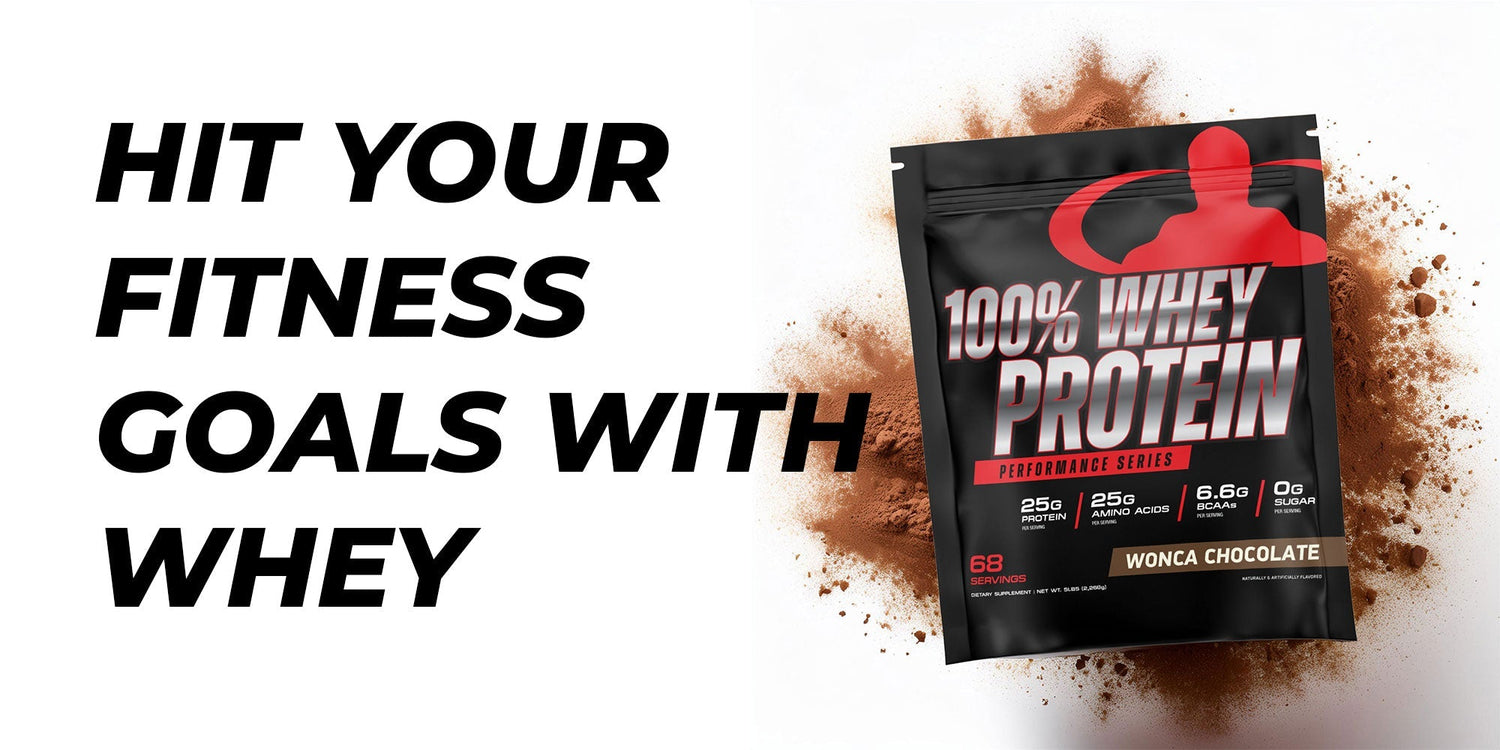Whey protein is a complete, high-quality protein naturally derived from milk during the cheese-making process. It contains all nine essential amino acids, making it a go-to choice for fitness enthusiasts and athletes seeking efficient muscle repair and growth. What sets whey apart is its rapid absorption rate, which allows the body to quickly utilize it post-exercise for muscle recovery and protein synthesis.
Incorporating whey protein supplements into your diet can:
- Support the development of lean muscle mass
- Aid in weight management by promoting satiety
- Enhance immune function through bioactive compounds like immunoglobulins and lactoferrin
This powerful nutritional tool caters to a range of fitness goals, from muscle building to fat loss and overall wellness.
Different Types of Whey Protein
When it comes to choosing whey protein, it's crucial to understand the differences between its primary forms. Each type varies in processing, nutritional profile, and how your body absorbs it.
Whey Protein Concentrate (WPC)
WPC is the most commonly available and budget-friendly form. It retains more nutrients from the original whey and generally contains between 30% to 90% protein, depending on the brand and purity. While it does include small amounts of fat and carbohydrates, WPC is ideal for those seeking a well-rounded protein source without strict dietary constraints.
Whey Protein Isolate (WPI)
WPI undergoes further processing to remove most of the fat and lactose, resulting in a protein content of 90% or more. This makes it an excellent choice for people with lactose intolerance or those on low-carb diets. It’s also leaner, delivering more protein per serving for muscle gain with minimal extras.
Whey Protein Hydrolysate (WPH)
Often referred to as "pre-digested" protein, WPH is enzymatically broken down into peptides, allowing for faster absorption. This makes it ideal for individuals who experience digestive issues or for post-operative recovery and elite performance training.
Assessing Your Fitness Goals and Protein Needs
To select the best whey protein for you, start by identifying your specific fitness objectives:
- Muscle Gain: Requires higher daily protein intake and a product rich in branched-chain amino acids (BCAAs).
- Weight Loss: Choose low-carb, low-fat options that still offer high satiety.
- Endurance Training: Focus on products that assist in muscle recovery and contain a blend of fast- and slow-digesting proteins.
Your daily protein needs depend on your body weight, activity level, and metabolic rate. A general guideline for active individuals is 1.6–2.2 grams of protein per kilogram of body weight.
How to Calculate Protein Intake
- Convert your body weight to kilograms (weight in pounds ÷ 2.2)
- Multiply by 1.6–2.2 to get your optimal daily protein target in grams
Understanding this helps you make informed decisions when selecting a whey protein supplement that aligns with your goals.
Four Key Factors to Consider When Choosing Whey Protein
1. Protein Content per Serving
Look for products that provide at least 20–25 grams of protein per serving. The higher the protein concentration, the more effective it is for muscle repair and growth.
2. Ingredient Quality
Opt for whey protein that’s free of artificial additives, fillers, and excess sugars. Products that are third-party tested or NSF Certified for Sport assure purity and safety.
3. Flavor and Mixability
Consistency and flavor matter for long-term adherence. Choose a product that dissolves well in water or milk and suits your taste preferences.
4. Dietary Restrictions
If you're lactose-intolerant, select WPI or WPH. Also, check for potential allergens like soy, gluten, or tree nuts depending on your sensitivity.
Top Whey Protein Recommendations
Here are some highly rated whey protein supplements based on quality, flavor, and user reviews:
Goliath Labs 100% Whey Protein
- 25g protein per serving
- Supports lean muscle mass
- Rapid amino acid delivery
- Explore Goliath Labs 100% Whey Protein
- Visit Goliath Labs Product Collection
Optimum Nutrition Gold Standard 100% Whey
- Highly regarded for taste and affordability
- A reliable all-around option for most fitness goals
- Smooth mixability and broad flavor range
Thorne Whey Protein Isolate
- NSF Certified for Sport
- Excellent digestibility and texture
- Trusted for clean, science-backed formulation
Incorporating Whey Protein into Your Diet
Whey protein is a versatile ingredient and can be easily added to your daily routine. Here’s how:
- Post-Workout Shakes: Mix with water or milk immediately after training for optimal recovery.
- Smoothies: Blend with bananas, berries, or spinach for a nutrient-dense snack.
- Baking: Fortify pancakes, muffins, or energy bites with protein powder to boost intake creatively.
Consistency is key. Find ways to incorporate whey protein that fits seamlessly into your schedule and taste preferences.
Making an Informed Choice
Choosing the best whey protein means aligning your supplement with your fitness goals, dietary needs, and lifestyle preferences. Whether you're aiming for muscle gain, fat loss, or improved recovery, understanding the types of whey protein, their benefits, and what to look for in a product puts you on the path to optimal performance and well-being.
Don't forget to prioritize ingredient transparency, protein content, and digestibility when making your selection.
Related FAQs
What is the difference between whey protein concentrate and isolate?
WPC contains some fat and lactose, while WPI has most of it removed, resulting in higher protein purity.
Can whey protein help with weight loss?
Yes. It promotes satiety and supports muscle retention during calorie deficits.
Is whey protein suitable for lactose-intolerant individuals?
Yes, particularly WPI and WPH, which have reduced or no lactose.
How much whey protein should I consume daily?
Aim for 20–40 grams post-workout and ensure your total daily intake meets your personal protein goal based on body weight.
Are there any side effects of taking whey protein supplements?
Generally safe, but excessive consumption may lead to digestive discomfort. Always consult your healthcare provider for personalized guidance.



